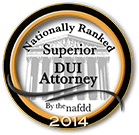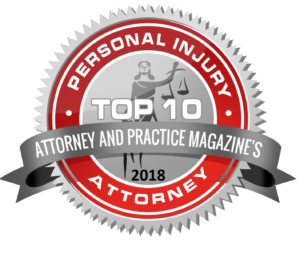Driving under the influence (DUI) is a serious offense in Virginia, and encountering a police checkpoint can be a nerve-wracking experience, especially if you have consumed alcohol. The way you handle yourself during a DUI arrest at a Virginia police checkpoint can have a significant impact on the outcome of your case. Understanding your rights, the legal process, and the potential consequences is crucial if you find yourself in this situation.

Understanding Virginia DUI Laws and Checkpoints
Virginia has stringent DUI laws designed to discourage impaired driving and protect public safety. A DUI arrest can occur when a driver is found to have a blood alcohol concentration (BAC) of 0.08% or higher, or if the driver is impaired by alcohol or drugs regardless of their BAC level. The state employs a zero-tolerance policy for drivers under 21, where any detectable amount of alcohol can lead to an arrest.
Police checkpoints, also known as sobriety checkpoints or roadblocks, are legal in Virginia and are used by law enforcement as a tool to identify and apprehend impaired drivers. These checkpoints are typically set up in areas where DUI incidents are common and are conducted with specific procedures to ensure that they comply with constitutional requirements. At a checkpoint, officers stop vehicles according to a predetermined pattern, such as every fourth car, to minimize any claims of discrimination or unlawful stops.
When approaching a police checkpoint, it is important to remain calm and composed. Panicking or attempting to evade the checkpoint can lead to further legal complications. While you are required to stop at the checkpoint, it is important to know that you have certain rights that protect you from unlawful searches and self-incrimination.
Your Rights at a DUI Checkpoint
Understanding your rights is essential when handling a DUI arrest at a Virginia police checkpoint. While you must comply with lawful requests, such as providing your driver’s license and registration, you are not obligated to answer questions about where you have been or whether you have been drinking. Politely informing the officer that you prefer not to answer any questions without legal representation is within your rights.
You also have the right to refuse a field sobriety test (FST) at a checkpoint. Field sobriety tests, such as the walk-and-turn or one-leg stand, are subjective and can be influenced by factors unrelated to alcohol consumption, such as fatigue, medical conditions, or uneven terrain. Refusing to perform these tests can be a strategic decision, but it may result in your arrest based on the officer’s observations and other evidence. However, refusing a breath test after an arrest, which is conducted using a breathalyzer, can have serious legal consequences due to Virginia’s implied consent laws.
Virginia’s implied consent law states that by operating a vehicle on public roads, you consent to chemical testing if you are lawfully arrested for suspicion of DUI. Refusing a breath test after being arrested can lead to an automatic suspension of your driver’s license for one year for a first offense, with subsequent refusals leading to longer suspensions and additional penalties.
Steps to Take During a DUI Arrest
If you are arrested for DUI at a Virginia police checkpoint, it is crucial to remain calm and cooperative. Resisting arrest or becoming argumentative with the officers will only worsen your situation. Here are key steps to take during a DUI arrest:
First, you should comply with the officer’s requests for identification and vehicle documentation. While you are not required to answer questions about your activities or consumption of alcohol, you should be polite and respectful in your responses. Remember, anything you say can be used against you in court.
If you are asked to step out of your vehicle, do so carefully and without resistance. At this point, the officer may ask you to perform field sobriety tests. As mentioned earlier, you have the right to refuse these tests, though doing so may result in your arrest. If you are arrested, you will likely be asked to submit to a chemical test, such as a breathalyzer or blood test. Refusing this test after an arrest can lead to additional penalties under Virginia’s implied consent laws.
During your arrest, it is important to remain silent about the specifics of your case until you have the opportunity to speak with a lawyer. You should immediately request legal representation, as anything you say to the officers can be used as evidence against you. Do not discuss the details of your arrest with anyone until you have consulted with an attorney.
Post-Arrest Procedures and Legal Representation
After a DUI arrest at a Virginia police checkpoint, you will be taken into custody and processed at a local law enforcement facility. This process typically includes fingerprinting, photographing, and being held in a holding cell. Depending on the circumstances of your arrest, you may be released on bail or held until your arraignment.
Your first court appearance, known as an arraignment, is where you will be formally charged with DUI and have the opportunity to enter a plea. It is highly advisable to have legal representation by your side during this process. A skilled DUI lawyer can advise you on the best course of action, whether that involves negotiating a plea deal or preparing for trial.
If this is your first DUI offense, the penalties can still be severe, including fines, license suspension, mandatory alcohol education programs, and even jail time. For repeat offenders, the penalties increase significantly, with longer jail sentences, higher fines, and permanent revocation of your driver’s license. Having an experienced DUI lawyer on your side is crucial in navigating the legal system and working towards the best possible outcome for your case.
Your lawyer will examine the details of your arrest, including the procedures followed at the checkpoint, the validity of the field sobriety and chemical tests, and any violations of your rights. They will use this information to build a strong defense on your behalf. In some cases, your lawyer may be able to challenge the legality of the checkpoint or the evidence gathered against you, potentially leading to the dismissal of your charges.
Choosing a DWI Attorney First Time DWI OffenseRelated Videos
The Importance of Timely Legal Action
Time is of the essence when handling a DUI arrest at a Virginia police checkpoint. Virginia law imposes strict deadlines for challenging a DUI charge, and any delays in securing legal representation can weaken your defense. In addition to the criminal penalties associated with a DUI conviction, a DUI arrest can have serious consequences for your driving privileges, employment, and personal life.
Acting quickly to retain a lawyer is essential to protect your rights and minimize the impact of a DUI arrest on your future. Your lawyer can file necessary motions, gather evidence, and represent you in court, all while working to achieve the most favorable outcome for your case. Whether that means negotiating reduced charges, entering a diversion program, or taking your case to trial, timely legal action is key.
Dealing with the Aftermath of a DUI Arrest
A DUI arrest can be a traumatic experience, leaving you with feelings of fear, anxiety, and uncertainty about the future. It is important to remember that you are not alone and that legal help is available. The aftermath of a DUI arrest is a critical time to take stock of your situation and make informed decisions about your next steps.
One of the first things you should do after a DUI arrest is to consult with a lawyer who is well-versed in Virginia DUI laws. They can provide you with a clear understanding of your charges, the potential penalties, and your legal options. This consultation will help you feel more in control of your situation and allow you to make decisions that are in your best interest.
It is also important to comply with any court orders or conditions of your release, such as attending alcohol education classes, refraining from alcohol consumption, or installing an ignition interlock device on your vehicle. Failure to comply with these conditions can lead to additional penalties and complications in your case.
Throughout the legal process, maintaining open communication with your lawyer is essential. Your lawyer will guide you through each step of your case, from the initial arrest to the resolution of your charges. They will keep you informed of any developments and help you understand what to expect at each stage.
The Role of a DUI Lawyer in Your Case
A DUI lawyer plays a crucial role in handling a DUI arrest at a Virginia police checkpoint. From the moment you are arrested, your lawyer will work to protect your rights, challenge the evidence against you, and advocate for the best possible outcome in your case. This includes examining the legality of the checkpoint, the conduct of the officers involved, and the accuracy of any tests administered.
Your lawyer will also explore potential defenses, such as questioning the validity of the breathalyzer results, arguing that the checkpoint was not conducted in accordance with legal standards, or demonstrating that your rights were violated during the arrest. In some cases, your lawyer may be able to negotiate a plea deal that reduces the charges or penalties you face.
If your case goes to trial, your lawyer will represent you in court, presenting evidence, cross-examining witnesses, and making legal arguments on your behalf. Their goal is to achieve the best possible outcome, whether that means securing an acquittal, negotiating a reduced sentence, or reaching a favorable plea agreement.
Handling a DUI arrest at a Virginia police checkpoint is a serious matter that requires careful consideration and swift legal action. Understanding your rights, remaining calm during the arrest, and seeking immediate legal representation are all critical steps in protecting yourself and minimizing the impact of the arrest on your life. The legal process can be complex and overwhelming, but with the right guidance and support, you can navigate it successfully.
At NovaLegalGroup, P.C., we understand the challenges and fears that come with a DUI arrest. Our experienced legal team is dedicated to providing compassionate, knowledgeable representation to help you achieve the best possible outcome in your case. If you or a loved one has been arrested for DUI at a Virginia police checkpoint, do not hesitate to contact us for a consultation. We are here to help you through this difficult time and to fight for your rights every step of the way.










